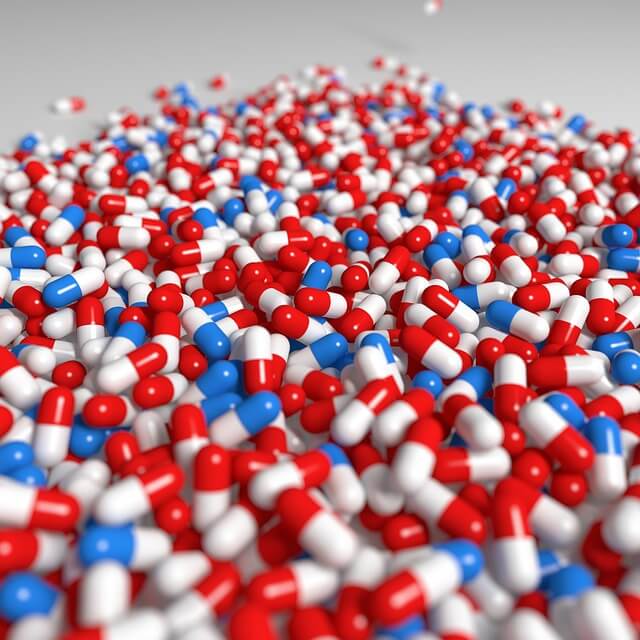Proton pump inhibitors (PPI) are often self-prescribed by the patients and since PPIs are available over-the-counter, patients can have free access to them and for long periods of time, without seeking medical attention. Although guidelines for OTC use suggest a short course (2 week treatment) of PPIs in patients with typical…
Tag: Pharmacology
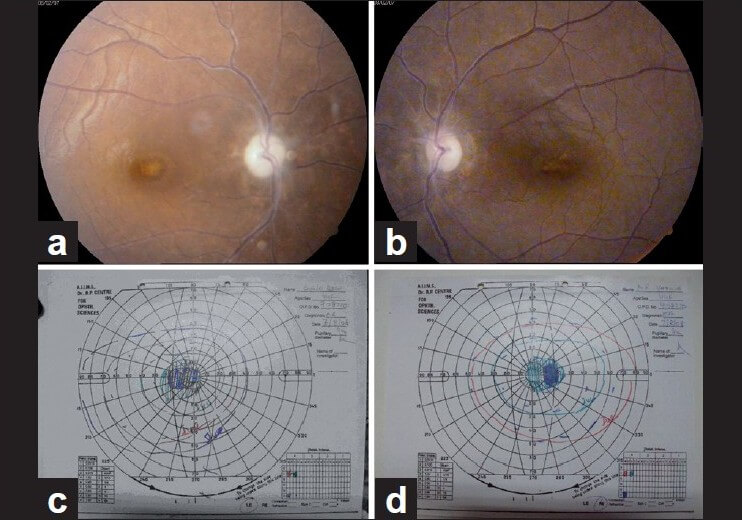
Ethambutol Induced Optic Neuropathy
Mechanism of Ethambutol induced optic neuropathy Ethambutol is metabolized to a chelating agent. The chelating agent formed then may impair the function of metal-containing mitochondiral enzymes, such as the copper containing cytochrome-c oxidase of complex IV and the iron containing NADH:Q oxidoreductase of complex I. These mitochondrial respiratory chain play…
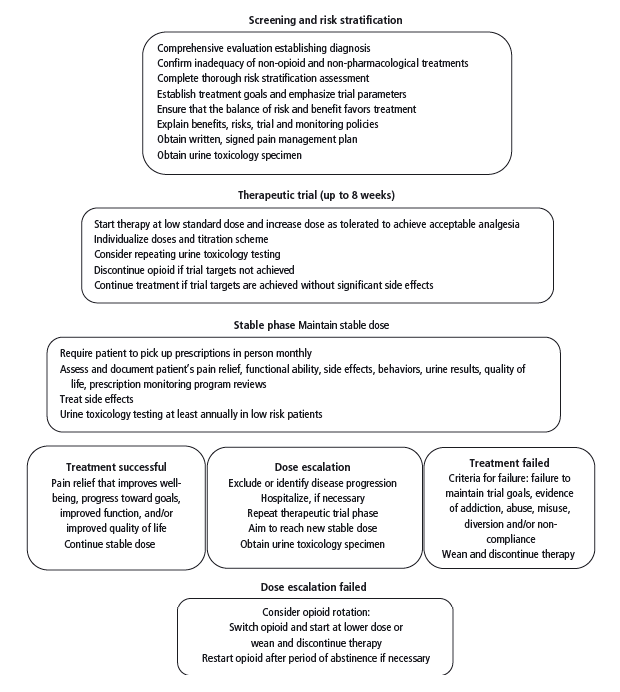
Prescribing Opioids for Chronic Pain
Recommendations for Prescribing Opioid in Chronic pain 1. 1st line of therapy in chronic pain outside of active cancer, palliative or end of life care must be nonpharmacologic therapy and nonopioid pharmacologic. Consider opioid therapy in combination with nonpharmacologic or nonopioid pharmacologic therapy if benefits outweighs risk. 2. Ordinarily 2…
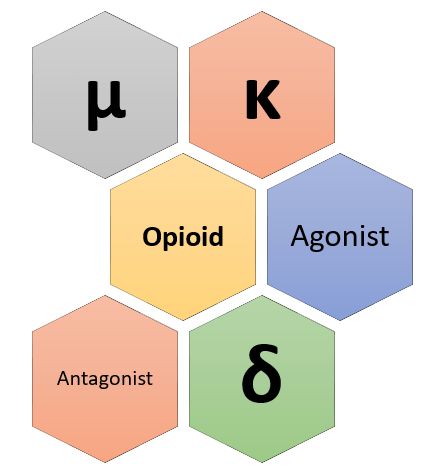
Opioid Receptors Mnemonic
Opioid receptors are a group of inhibitory G protein-coupled receptors with opioids as ligands. Mu (µ) Receptor (MOP) Mnemonic: MU CARDS Miosis eUphoria Constipation Analgesia (Supraspinal + Spinal) Respiratory depression Rigidity (truncal) Dependency Sedation µ1 mediates supraspinal analgesia, and most of other effects including spinal analgesia is mediated by µ2. Kappa…
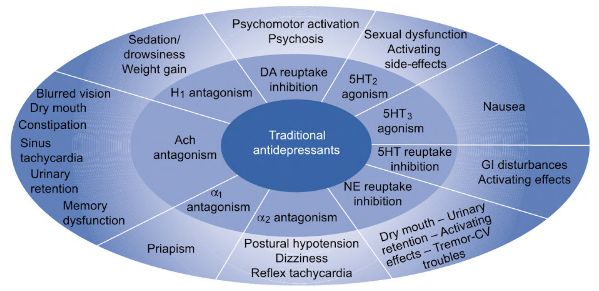
Antidepressants Made Easy
Tricyclic Antidepressants (TCA) Mnemonic: -pramine, -triptyline, -pin Secondary amines: predominantly norepinephrine reuptake inhibitors Nor-triptyline Desi-pramine Tertiary amines: Ami-triptyline Imi-pramine Clomi-pramine Doxe-pin Irreversible MAO Inhibitors Mnemonic: TIPS Non-selective MAO inhibitors: Tranylcypromine Isocarboxazid Phenelzine Selective MAO-B inhibitor: Selegiline (transdermal patch) Reversible Inhibitor of MAO-A (RIMA) Moclobemide Tolaxatone Tetracyclic Antidepressants Nonselective inhibitor of…
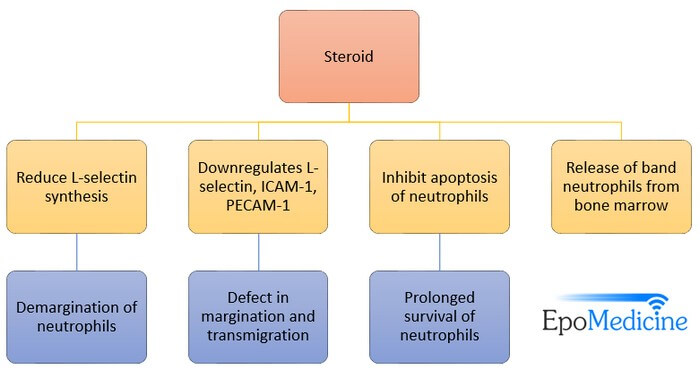
Steroid Induced Leukocytosis
Mechanism of Steroid Induced Leukocytosis There are 3 major mechanisms responsible for corticosteroid induced granulocytosis: 1. Demargination of neutrophils from endothelial cells (60% of the rise): Recall the leukocyte adhesion cascade in the chapter of inflammation. L-selectins are present in leukocytes that mediates their rolling on the endothelial lining of…
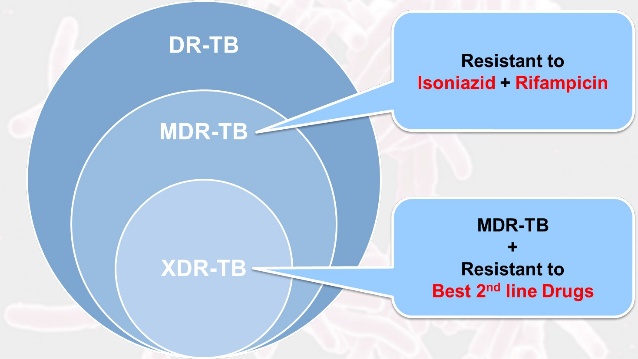
Drug Resistance TB Management Summary
Antitubercular drug symbols H = Isoniazid R = Rifampicin Z = Pyrazinamide E = Ethambutol S = Streptomycin Km = Kanamycin Cm = Capreomycin Lfx = Levofloxacin Ofx = Ofloxacin Mfx = Moxifloxacin Eto = Ethionamide PAS = Para-aminosalicylic acid Cs = Cycloserine Amx/Clv = Amoxicillin-Clavulanate Bdq = Bedaquiline Lzd…
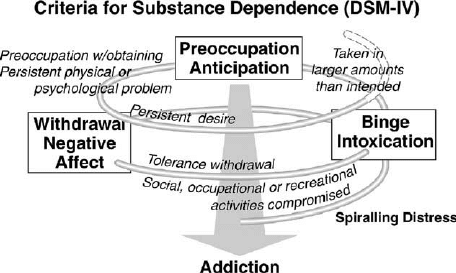
Substance abuse vs Substance dependence
Both of these substance use disorders are maladpative patterns of substance use, leading to clinically significant impairment/distress but defined by separate criteria. Substance abuse ≥1 of the following occurring within a 12 month period: Mnemonic: 4 Rs Role failure: Recurrent use resulting in failure to fulfill role obligation Risky behavior:…
